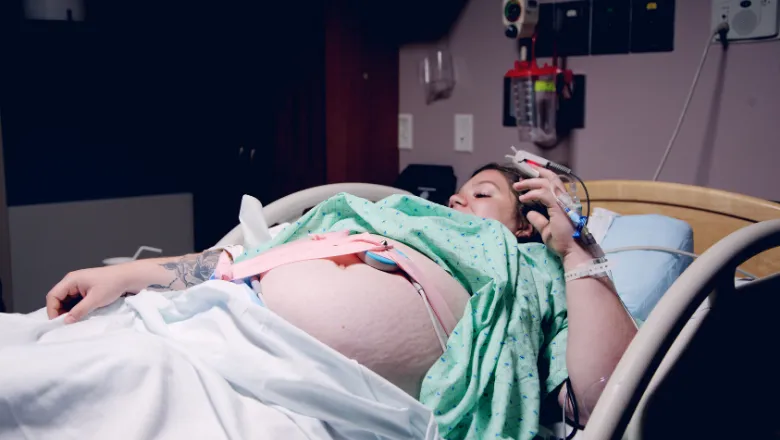We were surprised by the widely ranging cost estimates for different types of maternity care; these were identified despite inflating all costs to 2018/19 prices and excluding studies which were assessed as having low reporting quality. In the UK, healthcare commissioners fund maternity care using three nationally-agreed bundled tariffs, one for each of antenatal, intrapartum and postnatal care; these are uplifted when paying for more complex types of care received by women with co-morbidities or complications.
Dr Sophie Relph, Clinical Research Fellow from the School of Life Course Sciences
09 November 2020
Study finds variation in cost estimates for maternity care
Researchers have discovered a wide variation in cost estimates for maternity care in the UK, suggesting uncertainty about the true cost of care in the NHS.

The systematic review, published recently in the BMJ Open by researchers from King’s, set out to summarise the costs estimated when researchers assess how much new types of maternity care, drugs or interventions by doctors and midwives cost the NHS.
Assessing the cost of new types of care can ensure that the NHS spends resources in a way which maximises the health of people accessing its services.
Researchers found studies published during the last 10 years have used widely ranging estimates of the costs for common types of care during pregnancy. This includes costs for services such as antenatal appointments with a midwife, ultrasound scans of the baby, unassisted vaginal births, caesarean births, or the cost of caring for women with birth complications such as heavy bleeding or severe perineal tearing. For example, previous researchers have estimated that the cost of an emergency caesarean birth can cost anything between £1056.44–£4982.21.
She continued: "Small changes in maternity care, such as additional fetal growth scans, are not reflected by an increase in the relevant tariff. This means that a change to antenatal care which requires women to have additional fetal growth scans (or other interventions), and costs more money to the hospital, does not attract more money from the commissioner and overall, is not assessed as costing more money to the NHS. This presents a problem to researchers who are trying to calculate the true cost to the NHS of new models of maternity care, or new interventions, and therefore a directory of nationally-applicable costs for each component of maternity care is required to ensure that economic evaluations in maternity research are robust.”
Researchers conclude that the wide variation in cost estimates published in previous studies means that there is a lot of uncertainty amongst researchers about the true monetary cost of providing maternity care within the NHS. They recommend that future studies take this uncertainty into consideration when estimating the cost of new types of maternity care, and also that nationally-agreed contemporaneous cost estimates are required, suitable for use in research studies, to be used when estimating the cost of new types of maternity care in the future.
Visiting Professor Dharmintra Pasupathy, said: “Part of any study of new interventions or models of care in pregnancy should consider the associated healthcare costs as part of its’ wider evaluation. This study highlights the challenges in achieving this and calls for further efforts from researchers and healthcare commissioners to develop standardised costs for activities in maternity care, thereby enabling more informed and accurate research.”
Dr Andy Healey, Senior Health Economist, said: "We hope this paper will prove informative and valuable for other researchers evaluating cost-effectiveness on maternity care. It’s important that these analyses appropriately reflect the uncertainty around costs that exists and help to identify important gaps in evidence-base."
The study was funded by the Guy’s and St Thomas’ Charity, Sands and Tommy’s charity.


